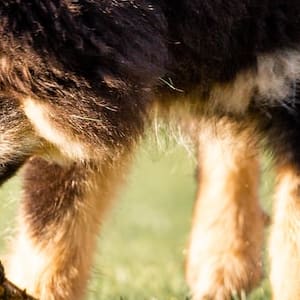ride herd on: Idiom Meaning and Origin
What does ‘ride herd on’ mean?
"Ride herd on" means to closely supervise or closely monitor someone or something.

Idiom Explorer
The idiom "run the show" means to be in charge or in control of a situation or event.
The idiom "run the rule over" means to examine or evaluate something or someone in a thorough and critical manner.
The idiom "rule the school" means to have complete control or dominance over a particular group or organization, typically a school or a similar social setting.
The idiom "rule the roost" means to be in control or have authority over others, especially in a family or group setting.
The idiom "ride the wave" means to go along with or take advantage of a favorable situation or trend. It implies adapting to the circumstances and enjoying the success or benefits that come from it.
"Ride the rails" is an idiom that means to travel by train, often used specifically to refer to the experience of being a hobo and illegally hopping on trains to get from place to place.
The idiom "ride tall in the saddle" means to display confidence, authority, and control in a situation. It is often used to describe someone who is self-assured and in a position of power.
The idiom "ride someone hard and put them away wet" means to use someone relentlessly and then discard them without consideration for their well-being or feelings.
"Ride shotgun" means to sit in the front passenger seat of a vehicle, next to the driver, usually to help with navigation or act as a lookout.
The idiom "ride roughshod over" means to act without caring about or considering the opinions, needs, or feelings of others, and to treat them in a harsh or unfair manner.
Controlling Chaos: Unraveling 'Ride Herd On'
The idiom "ride herd on" has its roots in the American West, where cowboys would literally ride alongside a herd of cattle to guide and protect them. Originally associated with the practice of ranching, this expression has evolved to encompass a broader context of supervision and management in various settings.
The concept behind "ride herd on" is the act of closely monitoring, directing, or supervising a group of individuals or a particular situation. It implies a hands-on approach to maintaining control and order, often involving assertive or authoritative behavior. This idiom is most commonly used in relation to leadership, management, or parental figures exerting their authority and vigilance to keep things in check.
Imagine a cowboy skillfully riding alongside a group of cattle, guiding them through vast and unpredictable terrain. The image evokes a sense of competence and control. "Ride herd on" implies a proactive and vigilant approach to supervision, ensuring that those under one's care or responsibility stay on track and avoid potential complications or conflicts.
Furthermore, riding herd on something can connote a sense of continuous or ongoing supervision. It suggests being constantly aware of and involved in the details and progress of a situation or group. It reflects a hands-on approach that leaves little room for negligence or complacency.
Similar to the idiom "ride herd on", the phrase "herd cats" encapsulates the idea of managing a group that is difficult to control. Cats are known for their independent and unpredictable nature, making them challenging to direct. Likewise, the expression "ride herd on" emphasizes the importance of assertive guidance and vigilance in overseeing a group.
"hold the reins", another related idiom, encompasses the notion of being in control and directing the course of action. When riding a horse, holding the reins allows the rider to steer and guide the animal. Similarly, "ride herd on" implies the need for active supervision and the ability to take charge of a situation.
"ride on the back of" is another idiom that aligns with the concept of "ride herd on". It suggests exerting control or influence over someone or something. When one person "rides on the back of" another, they are essentially using their position or authority to direct and shape the actions of the other person. This aligns with the idea of riding alongside a herd of animals to guide and protect them.
In a similar vein, the expression "rule the roost" conveys a sense of authoritative control or dominance. When someone "rules the roost", they are in charge and have authority over others. This parallels the notion of "ride herd on", where individuals assert their control and vigilance in managing and supervising a group.
Lastly, "ride tall in the saddle" signifies confidence and a strong sense of self-assurance. When riding a horse, sitting tall in the saddle demonstrates control and authority. This aligns with the assertive and vigilant approach implied in "ride herd on", where individuals actively oversee and guide others.
The idiom "ride herd on" embodies the idea of assertive and vigilant supervision. It draws inspiration from the image of cowboys skillfully overseeing their cattle and has become ingrained in the American English lexicon. Similar idioms such as "herd cats", "hold the reins", "ride on the back of", "rule the roost", and "ride tall in the saddle" complement the concept of "ride herd on" by emphasizing different aspects of control, authority, and guidance.
Example usage
Examples of how the idiom "ride herd on" can be used in a sentence:
- She rides herd on her team to ensure that everyone meets their deadlines.
- The teacher had to ride herd on the unruly students to maintain a productive classroom environment.
- The project manager rides herd on the various tasks to make sure the project stays on track.
More "Verbs" idioms



